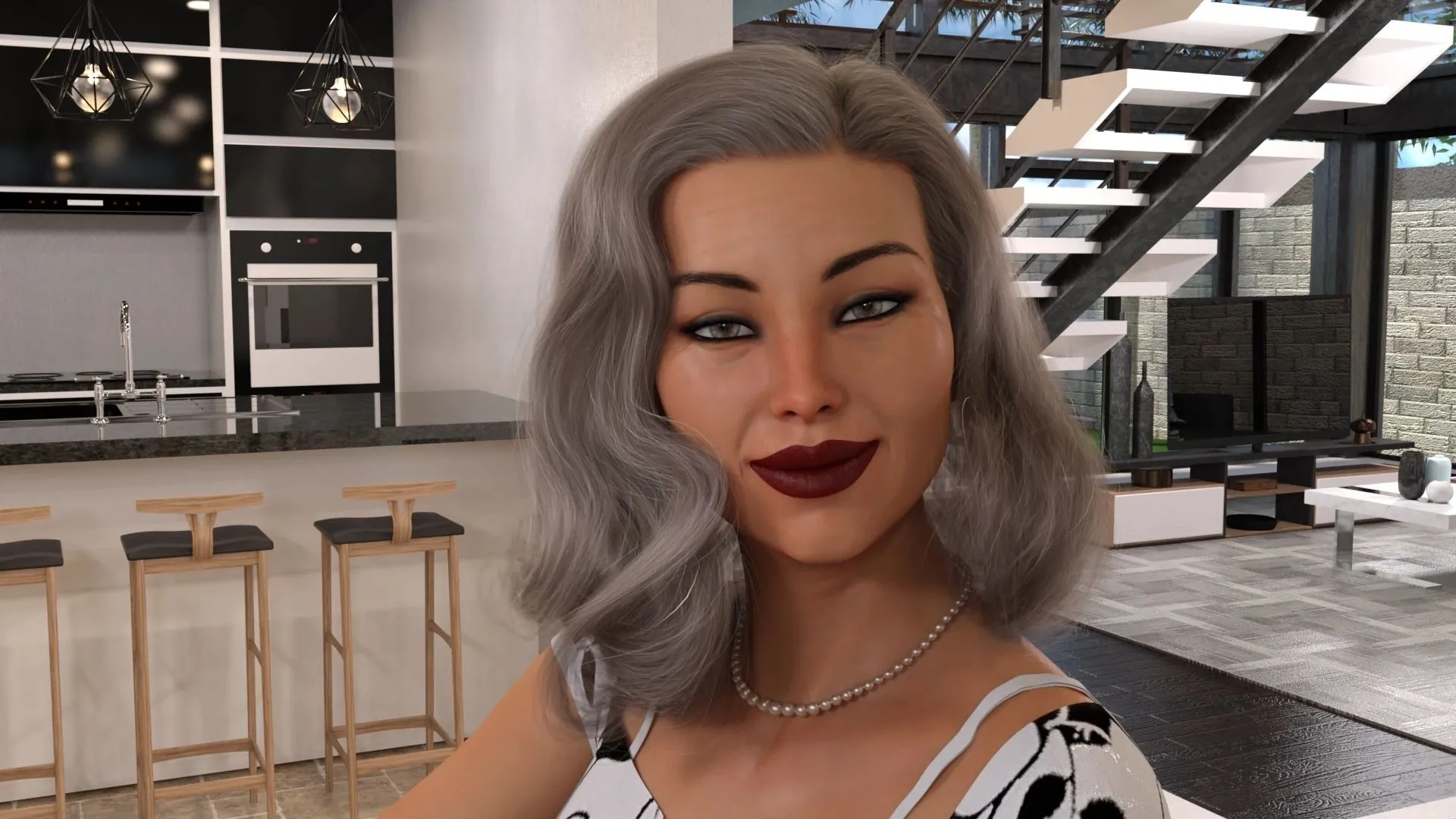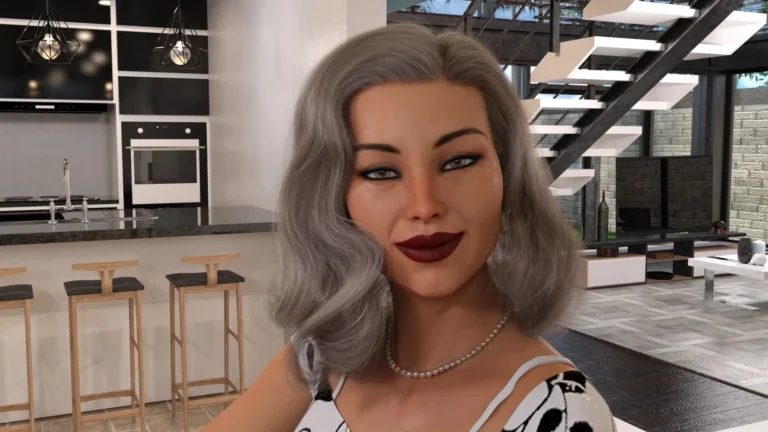
Grandma’s House
Play Grandma’s House
Grandma’s House review
Exploring Gameplay, Characters, and Unique Features of Grandma’s House
Grandma’s House is a distinctive adult-themed game that combines narrative depth with interactive gameplay. This game invites players into a complex world where relationships and storylines evolve naturally over time. In this article, we’ll explore the core aspects of Grandma’s House, including its gameplay mechanics, character development, and what sets it apart in the adult game genre. Whether you’re curious about the game’s design philosophy or want practical tips for engaging with its content, this guide will provide a comprehensive overview.
Understanding Grandma’s House: Gameplay and Storyline
Ever arrive at a family gathering and feel like you’re stepping into a story that’s already halfway through? 😅 That’s the exact, wonderfully awkward vibe Grandma’s House game captures from the moment you hit ‘New Game’. You play as a young adult returning for a family holiday, but this isn’t just any visit. You’re immediately plunged into a web of complex family dynamics, forgotten inside jokes, and the quiet tension of unresolved history. It’s less about grand, world-saving quests and more about navigating the delicate, often hilarious, minefield of a family reunion. This is the core of the Grandma’s House gameplay experience: finding your place in a story that started long before you got there.
What makes this interactive adult game so special is its commitment to realism. The stakes are emotional, not existential. Your goal isn’t to slay a dragon, but to maybe finally have a real conversation with your distant cousin or help your grandma find her missing reading glasses. It’s this grounding in relatable, human experience that sets the stage for its deeper narrative. The Grandma’s House storyline is a masterclass in subtlety, proving that the most compelling dramas happen over a crowded dinner table, not a battlefield.
### What is Grandma’s House About? 🏡
At its heart, Grandma’s House game is a slice-of-life visual novel. You assume the role of a character (with customizable elements) visiting their grandmother’s home for a seasonal gathering. The cast is made up of your extended family and a few close friends who are considered family—each character is meticulously crafted with their own personalities, secrets, and desires.
The brilliance of the Grandma’s House storyline isn’t in a twist-filled plot, but in its organic exploration of relationships. The game takes place over a relatively short in-game time period, forcing you to prioritize who you spend your limited time with. Do you help your aunt prepare the big meal, gaining her trust and hearing stories about your parent’s childhood? Or do you sneak off with your rebellious cousin to see what trouble you can get into? Every choice carves out a unique path.
I remember on my first playthrough, I spent so much time trying to impress my stoic uncle that I completely neglected my younger sister. Big mistake! 👎 By the end of the visit, she was cold and distant, and I got a very real, very guilt-inducing lesson in how my choices impacted someone I cared about. It’s this cause-and-effect design that makes the adult game narrative so powerful. It mirrors life: you can’t do everything, and your choices, however small, have consequences.
### Key Gameplay Mechanics ⚙️
The Grandma’s House gameplay is deceptively simple, which is its greatest strength. It’s built on a foundation of choice and conversation, designed to make you feel present in every moment.
-
The Dialogue Tree is Your Primary Tool: Every conversation is a branching path. Your responses can be flirty, sincere, sarcastic, supportive, or withdrawn. These choices don’t just change the immediate reply; they slowly build your character’s relationship with everyone in the house. A pattern of supportive comments will open up new, more vulnerable dialogue options with a character later on, while constant sarcasm might cause them to shut down.
-
Time Management is Everything: The game is divided into time blocks (e.g., Morning, Afternoon, Evening). You can only be in one place at a time. Do you spend the afternoon in the living room chatting or in the backyard playing games? This mechanic directly forces you to choose which relationships you want to develop, making the slow relationship building game aspect feel intentional and earned.
-
Subtle Affinity Systems: While there are hidden “affinity” scores for each character, the game rarely slaps a number on your screen. Instead, you gauge your progress through the characters’ changing behavior. Are they seeking you out for conversations? Are their dialogues more open and trusting? This feedback feels natural, not gamey.
-
Player Expression: Small customization options for your character and your choices in dialogue allow you to truly role-play. You can decide who you are in this story. Are you the peacemaker, the troublemaker, or the quiet observer? This level of control is a hallmark of a great interactive adult game.
Pro Tip: Don’t try to min-max your playthrough! The most rewarding way to experience Grandma’s House gameplay is to make choices that feel true to you, not ones you think will “win” the game. Embrace the awkward silences and the failed conversations—they make the genuine connections that much sweeter. ❤️
### Narrative Style and Character Development 🎭
This is where Grandma’s House truly shines. The narrative doesn’t feel written; it feels lived-in. The adult game narrative is mature because it deals with mature themes—family trauma, personal insecurity, unrequited feelings, and the struggle for acceptance—not because it’s fixated on explicit content. In fact, any romantic or intimate moments are almost always the result of a carefully cultivated emotional bond, making them feel like a natural progression of the relationship rather than a predetermined reward.
The character development in Grandma’s House is some of the most nuanced I’ve ever encountered in a game. Characters have layered personalities. Someone who seems arrogant at first might reveal themselves to be deeply insecure. A character who appears shy and reserved might have a wicked sense of humor that only comes out when they feel safe with you.
Let’s talk about a specific example. One character, let’s call him “Mark,” presents as a confident, almost cocky guy. My initial instinct was to challenge him with equally snarky replies. This led to a fun but superficial rivalry. On a second playthrough, I chose to be persistently kind and called him out on his behavior in a concerned, not confrontational, way. Slowly, his walls came down. He revealed the immense pressure he felt from his family to be successful and how his arrogance was a shield. This completely changed my perception of him and unlocked a deeply emotional storyline about vulnerability. This level of character development in Grandma’s House is not just possible; it’s the entire point.
The game is the ultimate slow relationship building game. Relationships evolve over shared activities and multiple conversations. A romance isn’t sparked by picking the right flirt option once; it’s built by consistently showing interest, being a supportive presence, and sharing private moments away from the family chaos. This pacing makes every achieved connection feel like a real accomplishment.
To help you keep track of the intricate web of relationships, here’s a breakdown of some core character dynamics you’ll encounter:
| Character Archetype | Initial Dynamic | Potential Development Arc |
|---|---|---|
| The Stoic Parent | Distant, difficult to please, focused on duty. | Can learn to express pride and emotion through shared tasks and quiet conversations. |
| The Estranged Sibling | Competitive, harboring old resentment, guarded. | Opportunity to address past conflicts and rebuild trust through honesty and vulnerability. |
| The “Black Sheep” Cousin | Rebellious, mischievous, feels misunderstood. | Can become a loyal confidant; relationship deepens by joining their adventures and showing non-judgmental support. |
| The Family Friend | Warm, welcoming, and a source of stability. | Often acts as an emotional anchor; can reveal their own hidden depths and complexities beyond their supportive role. |
Ultimately, Grandma’s House is a testament to the power of storytelling in games. It forgoes flashy mechanics for emotional depth, proving that the most compelling journey is the one that happens between people. It’s a game that stays with you long after you’ve turned it off, perhaps even inspiring you to look at your own family gatherings with a bit more curiosity and patience. ✨ If you’re looking for a game with heart, soul, and a stunning amount of replayability to explore every branching path, your next favorite experience is waiting for you at Grandma’s House.
Grandma’s House stands out in the adult game genre by offering a rich, story-driven experience that values character depth and gradual relationship development. Its gameplay encourages players to engage thoughtfully with the narrative, making each interaction meaningful. Whether you are new to the game or a returning player, understanding its unique approach can enhance your experience. Dive into Grandma’s House to explore its immersive world and discover the nuanced storytelling it offers.






























